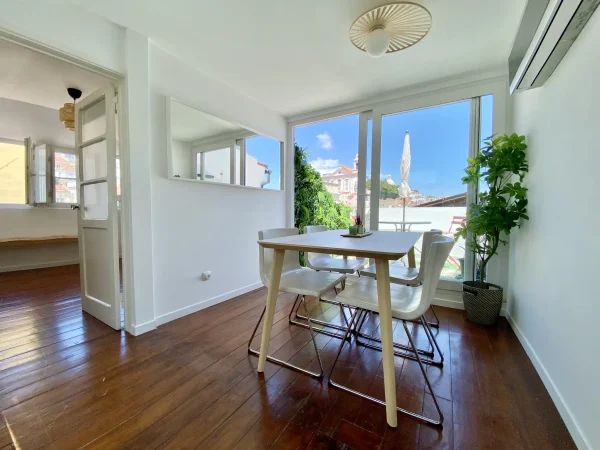The healthcare system in Portugal is renowned for its accessibility and quality, offering affordable care for both residents and expatriates. Access to quality medical care is essential for anyone considering settling in Portugal, whether for a short stay or an extended retirement. This comprehensive guide helps you better understand how the system works, the available health insurance options in Portugal, and the essential steps to obtain an SNS number and access public healthcare.
1. Overview of the Healthcare System in Portugal
The Portuguese healthcare system is primarily funded by public funds and is managed by the National Health Service (Serviço Nacional de Saúde – SNS). This public network allows citizens and residents to receive quality healthcare at reduced prices or, in some cases, for free. This model is supported by private insurance and care options, which enable patients to avoid waiting times and customize their medical coverage.

2. Access to Care for Residents and Expats
As a resident or expatriate, access to healthcare in Portugal depends on your residency status. All registered residents can benefit from public health services after obtaining an SNS number, which is necessary to access care in public hospitals and health centers. For specialized care, registration with the SNS is essential, while some expatriates prefer private health insurance to gain quicker access to certain services.
Tip: Newly arrived expatriates can contact their local town hall (Câmara Municipal) for information on how to access the SNS and public healthcare services.
3. Understanding Health Insurance in Portugal for Expatriate
Although the public system covers the majority of care, private health insurance in Portugal is an option for those who wish to avoid waiting times or have direct access to specialists. Several Portuguese insurance companies offer health policies tailored to expatriates, allowing quicker access and diverse coverage of care. Private insurance is particularly popular for dental and ophthalmological care, which are less covered by the SNS.
4. Public Hospitals vs Private Clinics : The differences
Portugal has two types of healthcare establishments: public hospitals and private clinics. Each has distinct characteristics in terms of costs, waiting times, and access to services. The table below compares the two systems to help expatriates choose the option best suited to their needs.
| Criteria | Public Hospitals | Private Clinics |
| Cost of Care | Low (or sometimes free) | Higher, variable rates |
| Waiting Times | Longer | Generally shorter |
| Care Coverage | Extensive coverage by the SNS | Full coverage if insured |
| Access to Specialists | Requires a prescription | Direct access without prescription |
| Emergency Care | Accessible to all | Available but often requires payment |
| Quality of Service | Good but with fewer choices | Personalized care options |
| Infrastructure | Modern in big cities | Modern comfort and equipment |
Tip: To avoid waiting times for non-urgent care, some expatriates opt for private health insurance that facilitates access to private clinics.
5. Access to Emergency Care
In Portugal, emergency care is accessible to everyone, including tourists. Emergency numbers like 112 are free and available for serious situations. Residents can receive emergency care without additional costs in public hospitals, although minor fees may apply in less serious cases.
Tip: In case of an emergency, call 112 immediately. This free emergency number is valid throughout Europe.
6. What Are the Costs of Medical Care in Portugal?
Medical care in Portugal is relatively affordable. For example, a consultation with a general practitioner in the public system costs about 5 euros, and specialist consultations cost around 7 euros. However, dental and ophthalmological care are less covered by the SNS and may require private health insurance for partial or full coverage.
To see how healthcare expenses fit into the broader financial landscape, read our detailed guide on the cost of living in Portugal.
Important: Expatriates who prefer immediate access to specialized care often choose private health insurance to alleviate these additional costs.
7. Private Health Insurance: Options and Rates for Expatriates
Health insurance options in Portugal for expatriates are varied, allowing quick access to specialized care. Medis, Multicare, Allianz and Tranquilidade are among the most popular companies. Insurance prices vary depending on the chosen coverage, with basic packages around 20-30 euros per month and more comprehensive packages exceeding 100 euros.
Tip: Compare different insurance policies to choose the one that best suits your needs and budget.
8. Healthcare in Portugal for Retirees
For retirees, Portugal is a popular choice thanks to its quality and affordable healthcare system. Retirees can benefit from public care, and many also choose private health insurance to complement their coverage and guarantee quick access to specific care.

9. Specialized Care Available in Portugal
Specialized care in Portugal covers a wide range of services, such as cardiology, neurology, and oncology. These services are available in public hospitals for residents with their SNS number but require a prescription. In private clinics, appointments can be scheduled directly.
10. Pharmacies and Access to Medications
Pharmacies are widely available and accessible throughout Portugal. Prescribed medications are often less expensive in public pharmacies and may be partially reimbursed for residents.
11. How to Obtain an SNS Number in Portugal: Step-by-Step Guide
Here are the steps to obtain an SNS number and access public health services:
- Become a Resident: Ensure you have residency status and proof of residence.
- Gather Documents: Prepare an identification document, proof of residence, and your NIF (tax number).
- Go to the Local Health Center: Bring your documents and request an SNS number.
- Fill Out the Form: An agent will assist you in completing the form.
- Receive Your SNS Number: Generally assigned immediately; if not, it will be sent by mail.
12. Challenges and Areas for Improvement
While the quality of care is good, some issues like waiting times in public hospitals remain challenges. Adding medical centers and improving hospital infrastructures in rural areas are areas for improvement for the Portuguese healthcare system.
13. Expatriates’ Experiences with the Healthcare System in Portugal
Many expatriates highlight the quality and reliability of healthcare in Portugal, although experiences may vary depending on the region. Generally, expatriates find that the healthcare system meets daily medical needs, and private options are appreciated for specialized care.
14. In Conclusion
The healthcare system in Portugal offers quality care with accessibility for all residents. Whether you choose the public system or private insurance, Portugal has a reliable and affordable medical network that meets the expectations of many expatriates and foreign residents.
Frequently Asked Questions (FAQs)
1. Is health insurance mandatory in Portugal?
No, private health insurance is not mandatory, but it is recommended for expatriates.
2. Who are the main health insurers in Portugal?
Médis, Multicare, Allianz, and Tranquilidade are popular insurers in Portugal.
3. How much does a medical visit cost in Portugal?
In the public sector, about 5 to 7 euros; in the private sector, it varies depending on the doctor.
4. Is emergency care free in Portugal?
Yes, for residents; minimal fees may apply in some cases.
5. How do I obtain an SNS number?
By registering at a health center with proof of residence.
6. Can retirees benefit from the Portuguese healthcare system?
Yes, resident retirees can access it and subscribe to private insurance.





